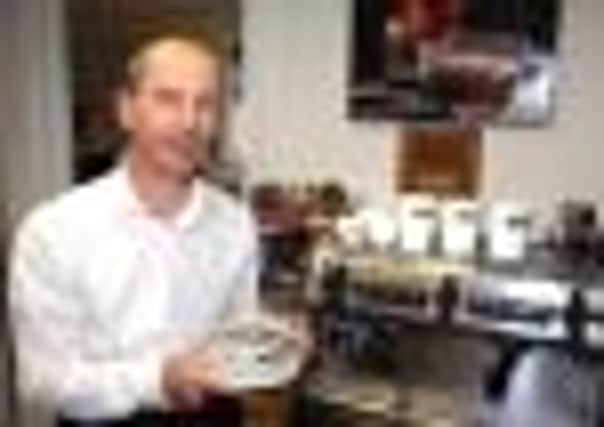Growing momentum to make the world a fairer place


When it comes to food, Yorkshire already boasts numerous claims to fame. It was the home of Terry and Rowntree’s chocolate companies, the birthplace of both Harry Ramsden’s fish and chips and the quintessentially English Betty’s tea rooms and where Fox’s Biscuits was founded.
Tomorrow it will be able to add the UK’s first Fairtrade region to that list. There will be an official declaration by the founder of the Fairtrade towns movement Bruce Crowther in York and according to the Fairtrade movement, the title represents something of a landmark in the campaign to get a better deal for producers in the developing world.
Advertisement
Hide AdAdvertisement
Hide Ad“This is the next logical step for the Fairtrade movement, which is driven by people coming together around a passion for a fairer world trade system and we would love to see more regions in the UK following the example of Yorkshire,” says Adam Gardner, communities campaign manager at the Fairtrade Foundation. “Incredibly, more than 60 per cent of the county already live in an existing Fairtrade town or borough so there is already a groundswell of support for the movement. This next step is about linking those campaigns, reaching into even more shops and crucial raising awareness of the issues facing farmers who produce much of our food but yet are not getting a fair deal.”
It’s almost 20 years since the Fairtrade mark was launched and in Yorkshire towns and cities have embraced the campaign, which calls for suppliers to be guaranteed not just a minimum price for their produce, but also better working conditions and minimal environmental impact.
Haworth, for example, celebrates a decade as a Fairtrade town in 2013 and elsewhere York-based Nestlé has confirmed the Kit Kat would be made from Fairtrade cocoa, a move which it said would benefit seven Ivory Coast co-operatives.
“The campaign has already garnered support not just from food companies, but organisations like Leeds University, which has already achieved Fairtrade status and stands now as a model for other employers, stocking Fairtrade produce in all its shops and food outlets.
Advertisement
Hide AdAdvertisement
Hide Ad“By officially becoming a Fairtrade region, it sends out a strong message that the county, which has already made a difference to the lives of countless communities, stands for and believes in a fairer system of trade.”
However, in recent years questions have been raised as to the effectiveness of the Fairtrade movement. While the label has become increasingly common on supermarket shelves achieving a fair price for poor farmers, some claim it has failed to address issues of mechanisation and industrialisation which would bring an end to back-breaking work and has instead left communities trapped in a poverty cycle.
Fergus Walsh had a long career in the catering industry before founding the Wicked Coffee Company back in 2001. Based in Wetherby, he is a supporter of the campaign, but is not blind to the pitfalls.
“When we were first starting out it wasn’t that easy to source quality Fairtrade coffee,” says Fergus, who sources the company’s beans from both Central Southern America and East Africa. “The quality has improved over the last 12 years, but the market can be volatile. Some times you find the co-operatives choosing not to sell through Fairtrade channels simply because they can get a higher price through regular markets.
Advertisement
Hide AdAdvertisement
Hide Ad“Fortunately, the larger co-operatives tend to be more predictable, but even we can’t guarantee that the money we pay for the produce does end up being spent improving the lives of the farmers.
“There is a large element of trust, and it’s one of the reasons why as well as backing the Fairtrade movement we are also involved in the Coffee Kids charity. It was set up to raise funds specifically for children’s and women’s education and help them earn a living away from the coffee plantations. It means that if there is a bad harvest one year, an entire family’s future isn’t dependent on one income.”
While still a small proportion of the global food market, sales of Fairtrade coffee rose from £18.6m in 2001 to £194.3m in 2011 and the Fairtrade Foundation insists it can and does make a real difference.
“Fairtrade is not a luxury,” says Adam. “It’s a necessity and Yorkshire being a Fairtrade region will inspire the next generation of consumers and decision makers.”